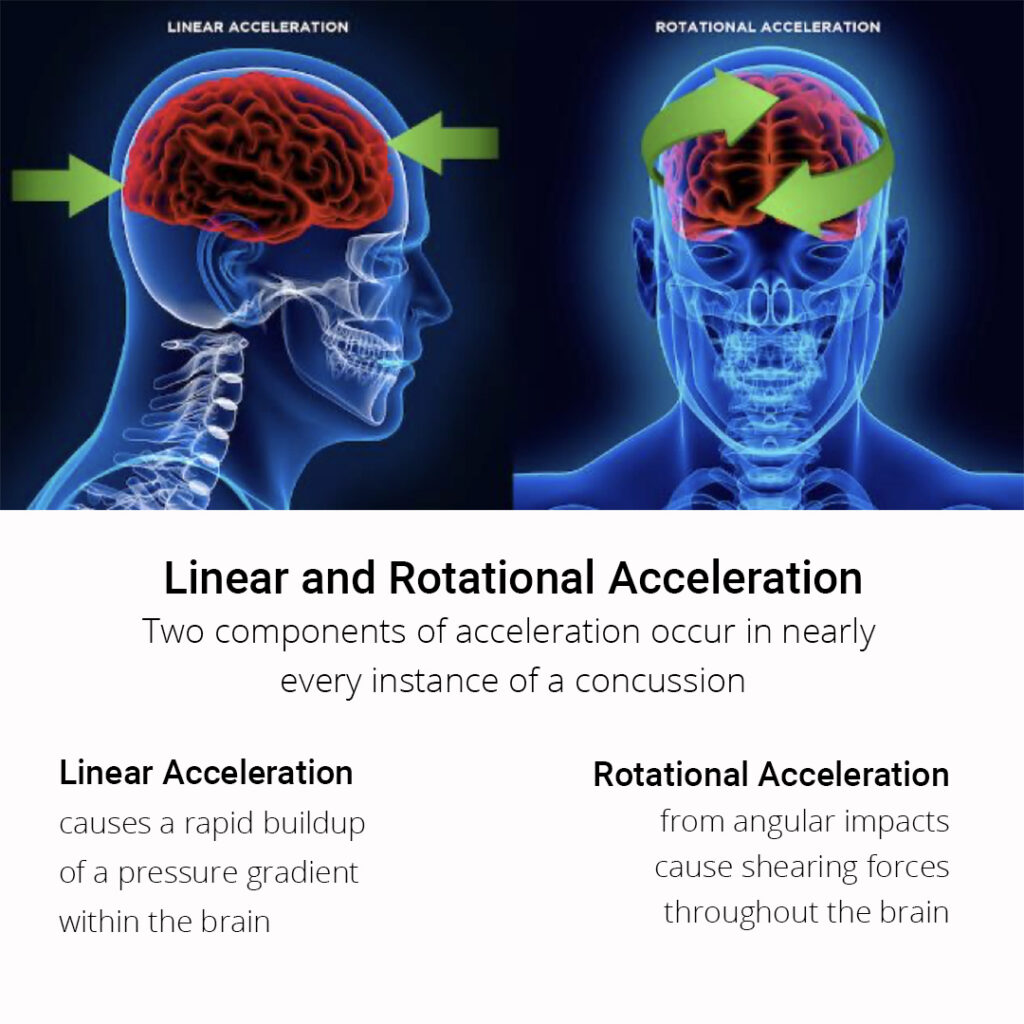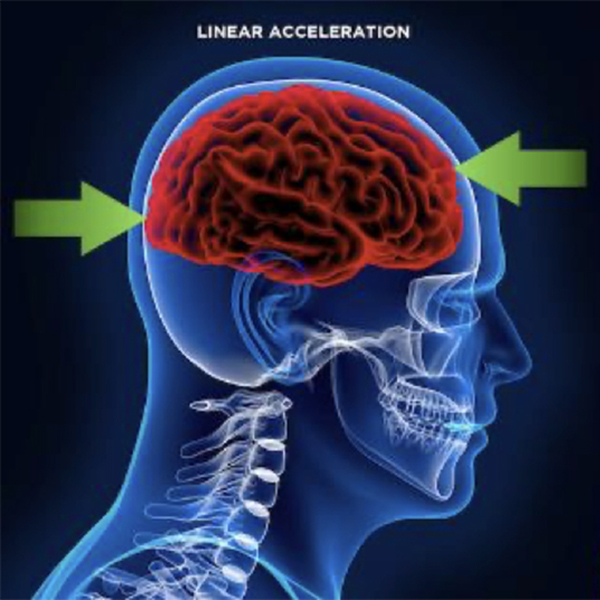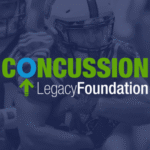What is a concussion?
A concussion is a brain injury caused by a blow to the head or body. It can occur from contact with another player, hitting a hard surface, or being hit by a piece of equipment.
A concussion:
- Can change the way your brain normally works
- Can range from mild to severe
- Presents itself differently for each athlete
- Can occur during practice or games
- Can happen even if you don’t lose consciousness
The Centers for Disease Control and Prevention (CDC) estimates 1.6 to 3.8 million sports and recreation related concussions occur each year with approximately 300,000 sports related concussions occurring annually in football*
There is considerable evidence showing that the primary cause of concussive injuries is the inertial, or acceleration, loading experienced by the brain at the moment of impact.**

What are Concussion Symptoms?
You can’t see a concussion, but you may notice the symptoms right away. Other symptoms can show up hours or days after the injury.
Symptoms to look for:
- Amnesia
- Confusion
- Headache
- Loss of consciousness
- Balance problems or dizziness
- Double or fuzzy vision
- Sensitivity to light or noise
- Nausea
- Feeling sluggish, foggy or groggy
- Feeling unusually irritable
- Concentration or memory problems (forgetting game plays, facts, meeting times)
- Slowed reaction time
How can you Prevent a Concussion?
Here are some basic steps you can take:
- Do not initiate contact with your head or helmet; you can still get a concussion while wearing a helmet
- Avoid striking an opponent in the head; undercutting, flying elbows, and stepping on the head can cause a concussion
- Follow your athletic department or league rules for safety
- Practice good sportsmanship at all times
- Practice and perfect the skills of the sport
What should you do if you think you have a concussion?
Don’t hide it.
Tell your coach or athletic trainer. Never ignore a blow to the head. Also, tell your coach or athletic trainer if one of your teammates might have a concussion. All sports have injury time-outs so that you can get checked out.
Report it.
Do not return to participation in a game or practice with symptoms. The sooner you get checked out, the sooner you may be able to return to play.
Get checked out.
Your team physician, athletic trainer, or a health care professional can tell you if you have had a concussion and when you are cleared to return to play. A concussion can affect your ability to perform everyday activities, your reaction time, balance, sleep and classroom performance.
Take time to recover.
If you have had a concussion, your brain needs time to heal. While your brain is still healing, you are much more likely to have a repeat concussion. In rare cases, repeat concussions can cause permanent brain damage, and even death. Severe brain injury can change your whole life.
Source: Centers for Disease Control and Prevention
*Marshall SW, Guskiewicz KM, Shankar V, McCrea M, Cantu RC. Epidemiology of sports-related concussion in seven US high school and collegiate sports. Inj Epidemiol. 2015;2(1):13. doi:10.1186/s40621-015-0045-4
**David F. Meaney, PhDa, and Douglas H. Smith, MD, Biomechanics of Concussion, National Center for Biotechnology Information





